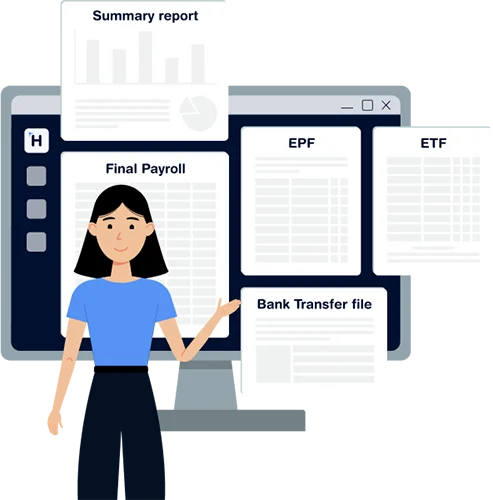Running a small business in Sri Lanka comes with its fair share of challenges and keeping track of employee information often falls to the bottom of the list. For many SMEs, essential records are still stored in printed files, scattered across desktops, or saved in someone’s inbox.
But when it’s time to process payroll, prepare a compliance report, or handle an employee resignation, missing or outdated documents can turn into a serious problem. That’s why it’s time for small businesses to shift to digital recordkeeping.
Not only does it reduce paperwork and save time, but it also supports better decision-making, audit readiness, and employee trust. Here are five of the most important employee records every SME should store digitally, and why they matter.
1. Personal and Contact Information
This includes basic employee details such as:
- Full name and NIC
- Address
- Date of birth
- Emergency contacts
- Mobile numbers and email addresses
Having accurate and up-to-date personal details is essential for everything from daily communication to emergency situations. Storing this digitally means any updates can be made quickly, and there’s no risk of losing handwritten forms or outdated files.
2. Employment and Job Details
SMEs often grow rapidly, and with that growth comes internal changes: promotions, transfers, and salary revisions. Keeping a digital record of employment information helps ensure clarity and accountability. This includes:
- Employment type (full-time, part-time, contract)
- Job title and department
- Salary history and increments
- Probation start/end dates
- Confirmation and resignation dates
This data becomes crucial for payroll processing, end-of-service settlements, and planning for internal growth.
3. Banking and Statutory Details
To run payroll correctly and stay compliant with local laws, accurate statutory and banking information is a must. Digitally storing these details reduces manual entry errors and helps streamline your payroll workflow. These records include:
- Bank account details for salary payments
- EPF and ETF numbers
- Tax file numbers (where applicable)
When integrated with your payroll system, this information helps generate bank transfer files, T10 forms, and other compliance documents automatically.
4. Contracts and Agreements
Storing employment contracts, NDAs, or any signed agreements digitally in one place not only keeps your records organized but protects you legally. It’s far more reliable than relying on physical files, which can be lost or damaged.
This is especially important during inspections or disputes. Being able to quickly retrieve a signed contract from your HRIS system saves valuable time and demonstrates professionalism.
5. Leave and Attendance History
Employee leave history is often overlooked when recordkeeping is manual. But over time, poor tracking can lead to conflicts, errors in no-pay deductions, and an inability to justify leave approvals.
With digital records, you can easily track:
- Annual, sick, and casual leave taken
- Leave balances
- Absences and late arrivals
- Timesheets or attendance logs (especially important for hourly workers)
These records are useful not only for payroll calculations but also for team availability planning and performance reviews.
Digital Records Are More Than Just Convenient
Digital recordkeeping does more than tidy up your HR process, it lays the foundation for a stronger, more resilient SME. It improves data accessibility, reduces errors, and builds a reliable audit trail.
Plus, it helps SMEs remain compliant with Sri Lankan labour laws and avoid last-minute scrambles to collect paperwork. With the right HR software, even a small business with a lean team can manage employee data like a large organisation.
And when your records are centralised, secure, and up to date, your entire team benefits, from HR and payroll to employees who want transparency and fairness.



